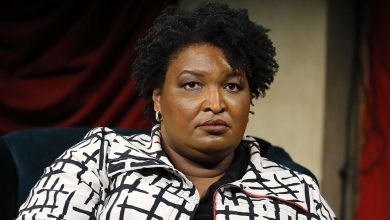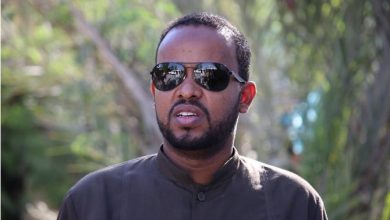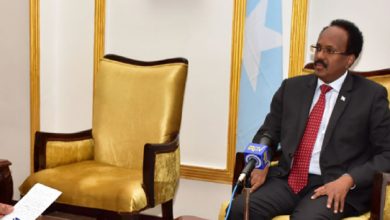Trump Travel Ban Opponents Gird for Fresh Legal Fight Over New Restrictions
Civil rights and immigrant advocacy groups are girding for the imminent implementation of the Trump administration's new travel restrictions, an announcement about which could come as early as Friday.
Civil rights and immigrant advocacy groups are girding for the imminent implementation of the Trump administration’s new travel restrictions, an announcement about which could come as early as Friday.
Rather than seeking to ban all travelers from six Muslim majority nations, as President Donald Trump aimed to do on a temporary basis with the current executive order he signed in March, the new measures will be “tailored,” senior administration officials said, spanning a “spectrum” from “enhanced vetting to more restrictive measures.”
The current restrictions, affecting travelers from Iran, Libya, Somalia, Sudan, Syria and Yemen, faced furious legal opposition and repeated injunctions by federal courts. They were allowed to be instituted by the Supreme Court in June, but only after certain exemptions for family members were implemented, and they were set to expire after a 90-day period that ends Sunday.
The expected new measures are based on the results of a 50-day review conducted by the Department of Homeland Security and the State Department of countries’ standards for screening and vetting potential travelers to the U.S.
Details about the new measures have not yet been disclosed, and though some groups were awaiting the details before responding, others were already vowing Friday afternoon to keep up their opposition.
“Regardless of what happens, it’s absolutely clear that this executive order continues to be driven by religious animus,” Jonathan Smith, legal director of the group Muslim Advocates, said in a statement. “Any nominal changes in countries or security rationalizations will not change that: this order has been and will continue to be the President’s way of making good on his campaign promise to institute a Muslim ban.”
The ACLU, which challenged the current travel restrictions in federal court, remained skeptical, saying the new restrictions appeared to be an effort to “paper over the original sin of the Muslim ban.”
“The devil is in the details,” executive director Anthony Romero said in a statement. “This looks to be the Trump administration’s third try to make good on an unconstitutional campaign promise to ban Muslims from the United States.”
Senior administration officials, noting that the restrictions remain “pre-decisional” until Trump approves them, declined during a press call Friday to specify which or how many nations may be affected by the new travel restrictions. They noted that the measures will be applied only to countries that have so far failed to meet “baseline” security standards.
As many as 17 countries were initially “flagged” by in the review, but about half were able to meet U.S. security standards, according to a report in The Wall Street Journal ahead of Friday’s call. Those requirements range from certain passport standards to sharing intelligence about crime and terrorism with American authorities, administration officials said.
“Some countries were unable, or worse yet, deliberately unwilling to comply with the baseline that we laid out,” Miles Taylor, counsel to the Secretary of Homeland Security said during a press call Friday. “Restrictions were based on each country’s deficiencies and the threat of other relevant circumstances.”
Unlike the current travel ban, which officials have insisted was needed to conduct the worldwide security review, the new measures will not have a specified end date. However, they are intended to be “temporary” and “may be lifted” after a country is found to be in compliance, Taylor said.
The measures are almost certain to upend an ongoing legal challenge to the current travel ban, which was set to be argued before the Supreme Court next month but could be found “obsolete or overtaken by events,” Georgetown Law professor Marty Lederman says.
Justice Department spokeswoman Sarah Isgur Flores said the administration will be “continuing to vigorously defend the president’s executive order.”
The new recommendations were first presented to Trump on Sept. 15 by acting DHS Secretary Elaine Duke. That same morning, Trump posted a message on Twitter, citing a bombing in London as reason for a “larger, tougher” travel ban.
The travel ban into the United States should be far larger, tougher and more specific-but stupidly, that would not be politically correct!
— Donald J. Trump (@realDonaldTrump) September 15, 2017
The tweet – and especially the reference to “more specific” restrictions “that would not be politically correct” – stoked concerns that the new version of the travel ban would prove harsher and perhaps seek to target Muslims more explicitly. Trump on the campaign trail had vowed for a temporary “total and complete shutdown” of Muslims entering the U.S. pending a security review, following the December 2015 shooting attack in San Bernardino, California. That remark and others figured prominently in legal challenges to the travel ban.
But the administration has maintained that security was the principle objective in issuing the travel ban while the issue was studied and in developing the new restrictions.
“What happened was a necessary antecedent,” Taylor said. “We needed a temporary suspension on certain countries in order to buy ourselves the time, the breathing room and the security to establish this worldwide baseline.”
Administration officials on Friday emphasized that new measures will vary depending on the country – that the “specific” focus referenced in Trump’s more recent tweet, in other words, did not apply to a particular ethnic group but to each country’s security climate and capabilities.
“This is not about, in our case, taking actions to arbitrarily punish foreign governments,” Taylor said. It’s been made abundantly clear throughout this process that these standards are to protect Americans, and with the effect of enhancing security worldwide for the traveling public.”





